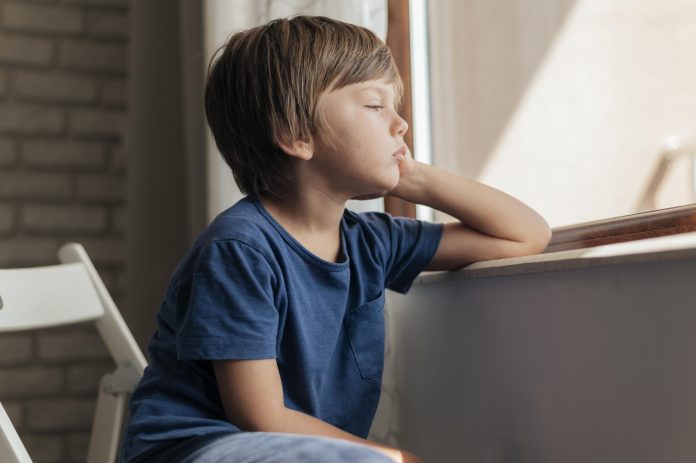The pandemic came and lasted for a long time, everyone has been struggling because of the consequences related to the work, income, habits, etc. of the affected adults. Yet, we almost forget to mention the equally important change: the children.
Surfing through today’s leading international newspapers such as CNN, New York Times, Los Angeles Times, etc., it is not difficult to notice parents sharing stories about the change of their children’s personality and interests, some are positive, some are not.
“5 Tips for teaching kids at home during COVID” article below will help you know how and why your kids may suffer from negative feelings to better understand and educate your child.
Dear parents: You are not alone
Witnessing parents being unemployed, fighting, spending too much time online, less interacting with friends, acquaintances in real life, etc. all make children bored and experience unusual psychological signs.
Having two young children, Ms. Chan said that her family’s life has changed a lot since the pandemic. According to her, on the positive side, parents and children have a lot more time together than before.
However, it is difficult to work from home since the children are always begging their parents to play with them. If she doesn’t play with them, the kids will be sad and misunderstand that parents prefer to work to play with them.


And Ms. Clair (Deputy Sales Department of a foreign company) said that in the past two years, she has often been stressed and argued with her husband. Within the impact of COVID, the company’s business situation fluctuated, the staff was cut, so the workload increased significantly. There were times when she saw her child shed tears when her husband and she argued at dinner.
Another story is from Mrs. Cyrus. Both parents are managers so the time to spend with their children is very limited, seeing their 15-year-old son staring at the laptop screen and games all day, but the couple does not know how to start a conversation or plan to solve it.
They reasoned that they didn’t have time with them but also, they didn’t want them to go out and in contact with too many people during COVID, that’s why they had to let things happen like that.
Find this helpful? You also love these:
5 Tips for teaching kids at home during COVID
The closure of schools forces students to stop going to school, and instead stay at home to play. This is a real problem as the children are going to school with 2 missions. First, school is where children find interaction and connect with their peers by hanging out with each other. Second, school is where children find their purpose and meaning in life.
When the above things are suddenly “cut off”, it will lead to many consequences, disappointment, and emptiness in the children. That’s why you need some tips below for teaching kids at home during COVID better:
TIP 1: Keep an eye for unusual psychological signs
If your child shows signs that are quite different from before, such as:
- Fatigue
- Boredom
- No interest in activities that he/ she used to love
- Changes in living habits, poor appetite
- Difficulty in eating, sleeping
- Afraid to communicate
- Lazy to exercise…
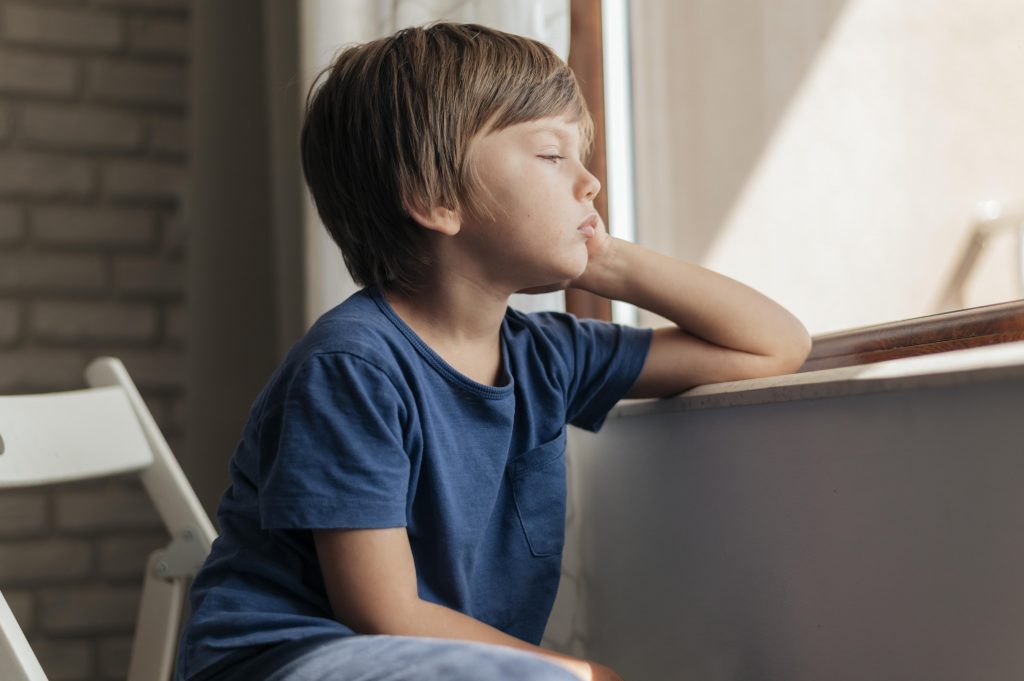

TIP 2: Continuously have constructive conversations
Talk honestly with your children about what happened during the pandemic, so that they understand that the conflicts between parents, if any, are caused by poor psychological control, not a breakdown in the relationship.
Staying home also means using more internet devices, you should have an open dialogue with children about how and to whom sexual harassers reach and communicate online, about why they are targeting your child, why can’t you trust them, and explain clearly that what you send them will stay forever on the Internet even if you delete it.
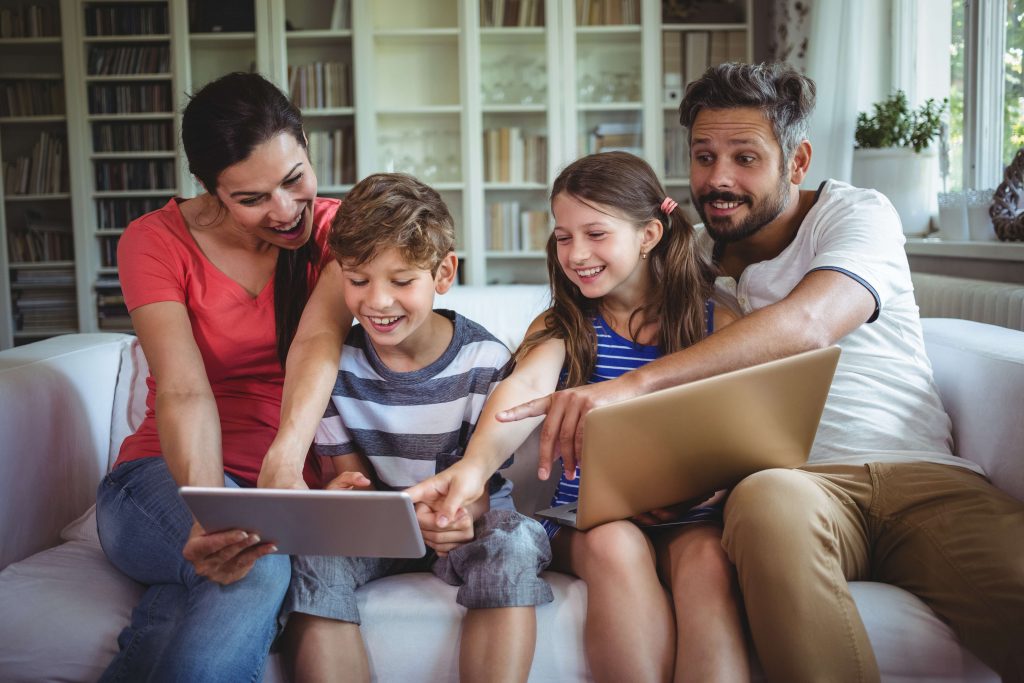

TIP 3: Make fun physical activities
To eliminate feelings of boredom and inactivity, you can exercise with your child, or exercise combined with lessons such as doing yoga while counting numbers, cooking together with your child, etc.
However, you don’t always have time to organize such things for your child. That’s why you need to train your child’s bravery with stories, interactive activities, and courses so that they always have their own solution to face all boredom and adversities.
TIP 4: Use the content filtering tool
Digital platforms provide opportunities for children to learning, entertaining, and staying in touch with their friends. However, increased online access carries higher risks for children’s safety, protection and privacy.
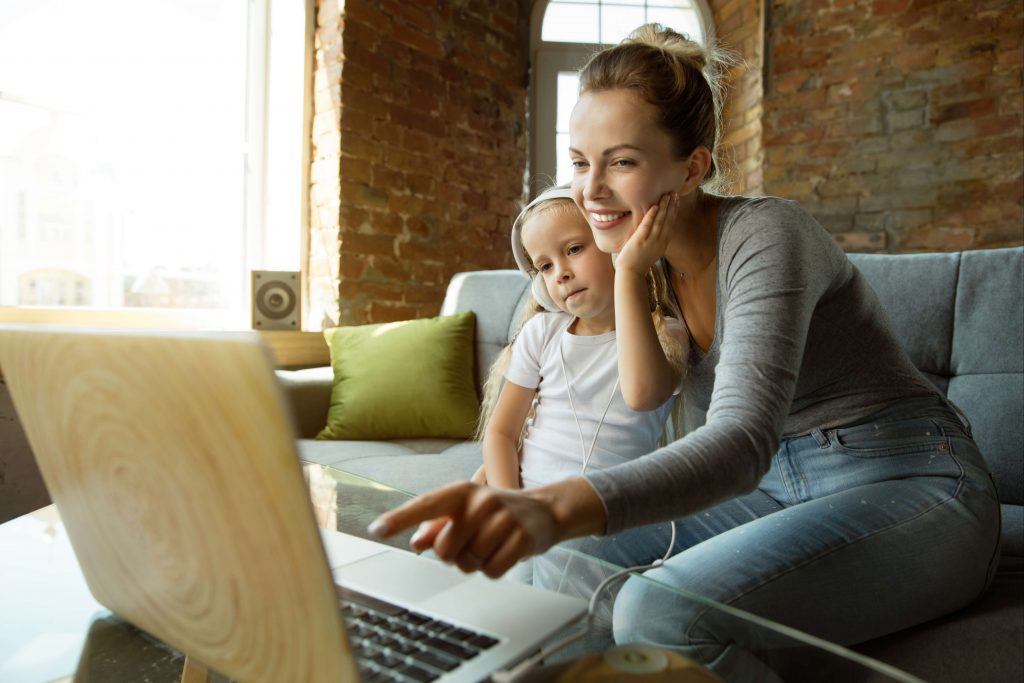

![]()
![]()
- Horror content like gore, accident, ghost, violence, murder, terrorism, etc.
- Content about stimulants, addictive substances such as alcohol, beer, marijuana, drugs, etc.
- Content with aggressive elements, hurting others like Hate speech
The special thing is that this extension is completely free and doesn’t slow down your computer.
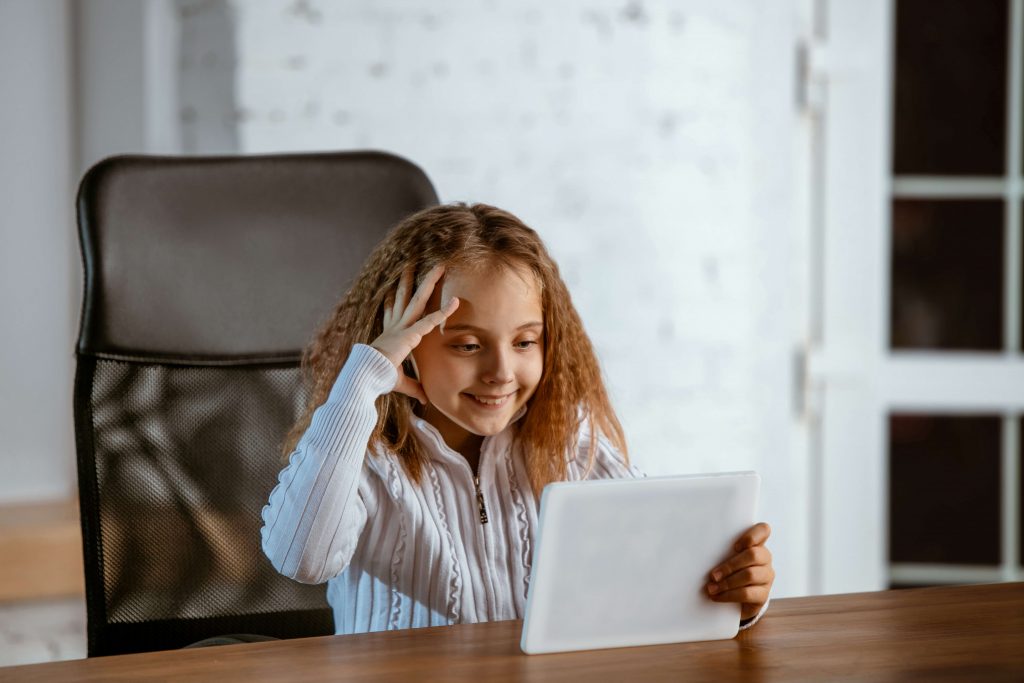

TIP 5: Plan a routine together
The parent should explain to their children about the work schedule and clearly define the time to interact with them so that it is less likely that children become sad when parents busy working.
We, adults, when going to work, we don’t necessarily just go to work for a salary, but also want to create value and meaning for our lives. Similarly, staying at home and playing all day is not likely to make children happy as much as they go to school.
That’s why parents should actively select for them age-appropriate educational channels or programs for children to learn more useful information.
Also, exercising during break time or doing house chores together is great for children’s development and the parents-children relationship.
Find this helpful? You also love these:

